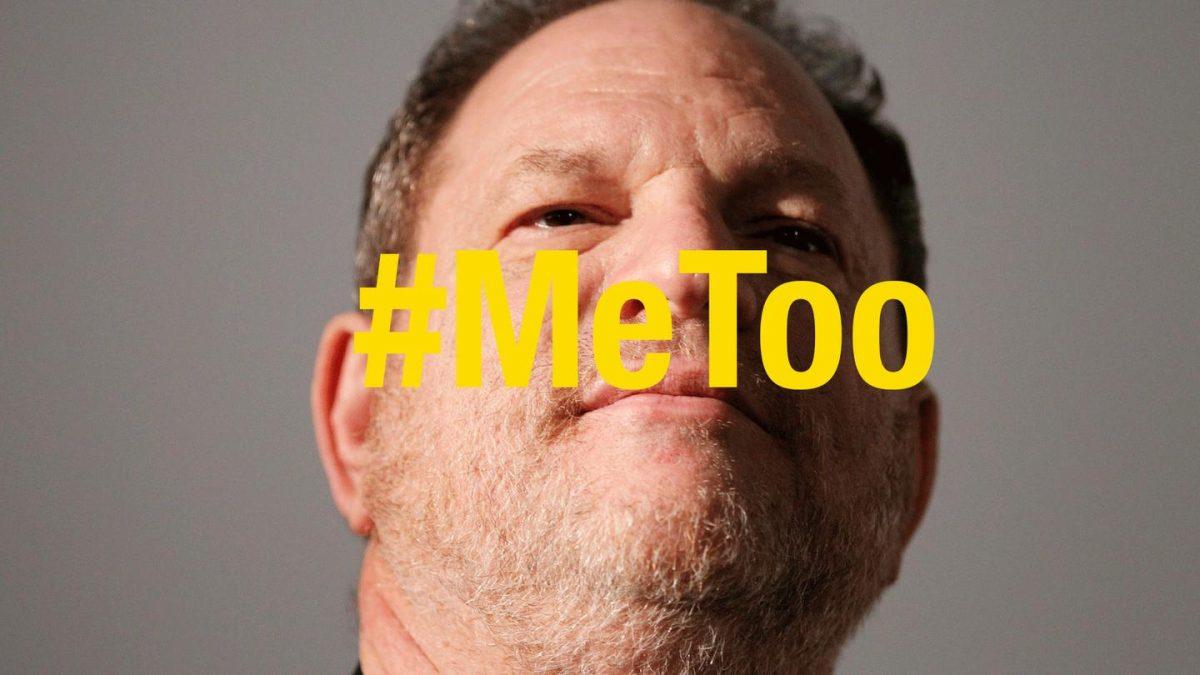In the beginning of October, well-renowned film producer, Harvey Weinstein, was publicly ousted for his numerous, alleged, lewd acts of sexual assault in the New York Times. Turning from a respected producer to notorious in the drop of a hat, Weinstein is not the first man to use his wealth and power to both dominate and harass women in the entertainment industry.
There is no way to determine the magnitude of mistreatment these actresses, and actors, have been through. But the industry is now somewhat forced to discuss the issues that have been previously pushed aside.
The men and women behind the scenes, directors, editors, etc., cannot be forgotten because it is not just the onscreen individuals who experience this form of harassment. About a month ago, two female writers from the Adult Swim cartoon “Rick and Morty” had been receiving death threats as well as explicit sexual comments via several media forms after the audience discovered that one of the show’s best episodes was not written by a man. This type of behavior makes one think, why are talented female writers eliciting such a powerful amount of violence and hate? Is it intimidation, or just the deep rooted issue of misogyny?
More individuals are courageously stepping out and sharing their experiences, some of which include actresses Lupita Nyong’o, Reese Witherspoon, and Jessica Chastain. The recent and overwhelming wave of those who have spoke out leads to the realization that the sexist roots of the film industry have not really left but were just hidden in plain sight.
Quentin Tarantino, renowned director and close colleague of Harvey Weinstein, admitted to knowing enough about his sexual misconduct but never acting on it. Tarantino too publicly regretted the lack of responsibility he took to share what he heard about his fellow colleague decades ago. But by disregarding Weinstein’s behavior, Tarantino aided in keeping these shameful acts under wraps as well as enabling the continuation of this behavior.
Taking matters into their own hands, women in the film, and music industry as well, have had a history of warning fellow female artists to stay away from certain men. Lana Del Rey has used her music to, allegedly, voice her opinions on and personal experiences with Weinstein himself in her song “Cola,” in 2012. Reportedly, the song mentions how Weinstein actively pursued Del Rey despite her disinterest and the fact that she had a boyfriend at the time.
Unfortunately, actresses still battle misogyny, facing degrading situations while auditioning for roles, or even after an audition, so they can continue on a successful path and not become blacklisted from work or the industry a whole. Most likely since the birth of film in the 1890s, women have been coerced into using and or exploiting their sexuality in order to get the jobs they strive and work towards. The term “casting couch,” became a common term to describe a woman’s exploitation in order to further or start her career, coined in 1937.
These dominant, veteran male figures geared a way of making young actresses feel as if they cannot get anywhere in this industry without their help or good word. And their networking skills unfortunately come at an unwilling price.
Even when a woman has flourished in the industry, her mind can become overpowered by these domineering men reminding her that they are the sole reason she is, and continues, to be the actress she is today.
The Directors Guild of America organized a meeting this past week to address the issue of sexual harassment in the film industry. As a result, the DGA has now begun the process of expelling Harvey Weinstein from the guild. Typically, the DGA does not take a particular stance on “internal matters,” it is nice to see that this mindset is changing. However, why has it taken the leaders of the industry so long to step up and openly discuss the issue of sexual harassment in the workplace?
Of course, historically, those who hold high power and prestige are not held fully accountable for their lack of conversation. However, those who hold positions in organizations like the Academy of Motion Pictures Arts and Sciences, an organization whose projects reach an audience of millions would be perfect candidates to discuss and generate change. Film producer Kathleen Kennedy, who is on the Board of Governors for the Academy, feels a sense of responsibility to transform the narrative of sexual harassment in Hollywood. She is looking to create a commission whose goal is to provide protections against acts of sexual assault; all funded for by the industry. Kennedy wants to revise how the industry handles sexual misconduct and abuse her workplace by having lawyers, psychologists, feminist activists, and others who work in film available to aid all of those affected by these injustices.
Sexual harassment in the workplace is not a topic that should be taken lightly, it needs to be faced head on in order to establish any sort of change. It can no longer be swept under the rug or discussed in private. The whispers and murmurs that plagued the film community are beginning to morph into one loud, unified voice that is ready and committed to make an immediate difference.





![[Both photos courtesy of sonoma.edu]
Ming-Ting Mike Lee stepped in as the new SSU president following Sakakis resignation in July 2022](https://sonomastatestar.com/wp-content/uploads/2024/04/CC4520AB-22A7-41B2-9F6F-2A2D5F76A28C-1200x1200.jpeg)


























